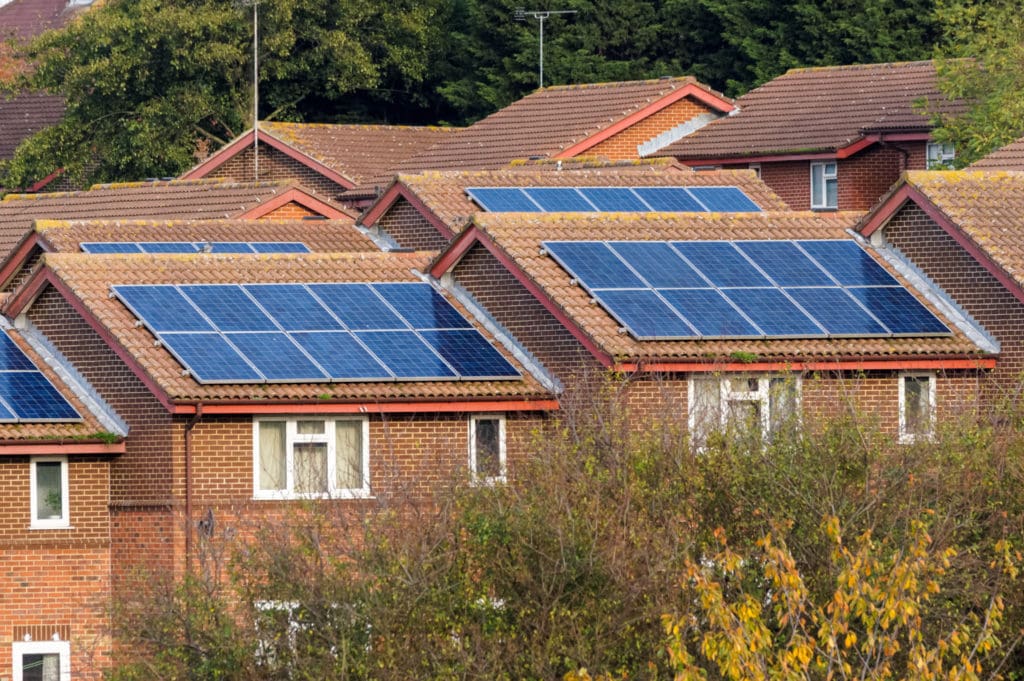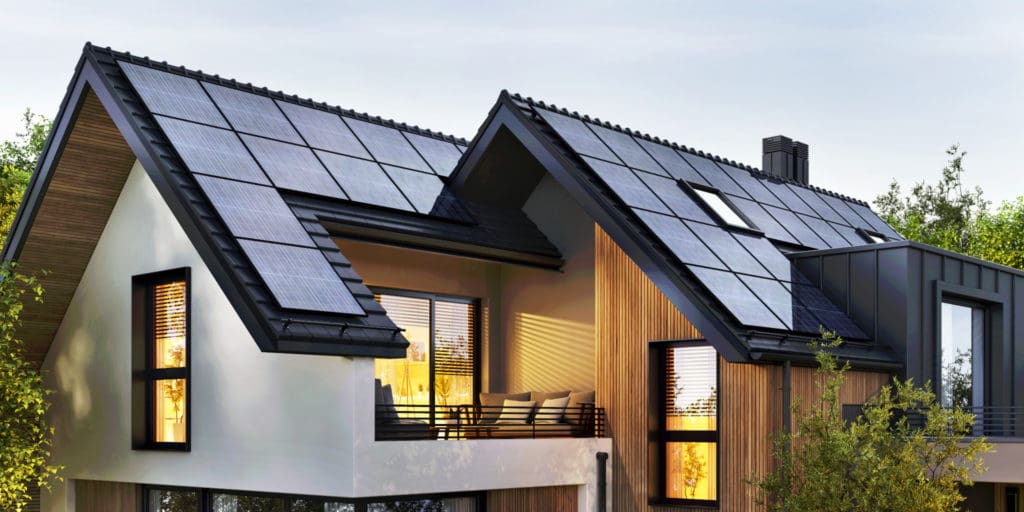Improving your home’s energy efficiency is not only beneficial for the environment, but it can also help you save money on your energy bills. With numerous ways to enhance your home’s energy efficiency, it can be challenging to decide which solutions are best suited for your needs. In this article, we will discuss the top 5 energy efficiency solutions for your home, complete with their advantages and disadvantages. We will also provide approximate costs for installing these solutions in an average 3-bedroom house. These solutions are for long term saving on bills, as many of them require a large up-front investment.
Solar Panels

Solar panels are a popular way to boost your home’s energy efficiency. By converting sunlight into electricity, solar panels can power your home and even store excess energy in a battery system for later use.
- Pros: Solar panels are eco-friendly, reduce your carbon footprint, and can save on your energy bills. They typically have a lifespan of 25-30 years.
- Cons: The initial cost of solar panels can be high, with installation costs for an average 3-bedroom house ranging from £5,000 to £8,000, depending on the system size and panel quality.
Air Source Heat Pumps
Air source heat pumps extract heat from the outside air and use it to warm your home and provide hot water. These systems are an efficient way to heat your home and are compatible with most properties.
- Pros: Air source heat pumps have low running costs, minimal maintenance requirements, and can reduce your carbon emissions. They have a lifespan of around 15-20 years.
- Cons: The initial installation cost can be substantial, with prices for a typical 3-bedroom house ranging from £7,000 to £11,000. During extremely cold weather, the system may not provide sufficient heat.
Ground Source Heat Pumps

Ground source heat pumps absorb heat from the ground using buried pipes filled with a mixture of water and antifreeze. This heat is then used to warm your home and provide hot water.
- Pros: Ground source heat pumps have low running costs, are environmentally friendly, and can last up to 25 years. They are eligible for government grants like the Renewable Heat Incentive (RHI), which can help offset installation costs.
- Cons: The installation process can be invasive and requires a large outdoor space. Costs for a 3-bedroom house typically range from £10,000 to £18,000.
Off-Peak Powerwalls (such as Tesla Battery Home Storage)
Off-peak powerwalls, such as the Tesla battery home storage system, allow you to store excess electricity generated by solar panels or other renewable sources. This stored energy can then be used during peak hours when electricity prices are higher.
- Pros: Powerwalls can help reduce your energy bills, provide backup power during outages, and are compatible with various renewable energy sources. They have a life expectancy of around 10-15 years.
- Cons: The initial cost of a powerwall system can be high, with prices for an average 3-bedroom house ranging from £6,000 to £10,000. Regular maintenance and eventual battery replacement may be necessary.
Solar Roof Tiles

Solar roof tiles integrate solar panels directly into the roof tiles, creating an aesthetically pleasing appearance while still generating electricity from sunlight.
- Pros: Solar roof tiles can increase your home’s energy efficiency, reduce your carbon footprint, and save on energy bills. They have a life expectancy of around 25-30 years and may increase your home’s value due to their attractive appearance.
- Cons: The initial cost of solar roof tiles can be more expensive than traditional solar panels. Installation costs for an average 3-bedroom house range from £10,000 to £20,000, depending on
Investing in energy-efficient solutions for your home is a smart choice that can save on your energy bills, benefit the environment, and increase your property’s value. Weigh the pros and cons of each solution, and select the one that best meets your needs and budget. With proper planning and consideration, you can transform your home into an energy-efficient haven while minimising your carbon footprint.
Looking for a qualified EPC Assessor in your Area?
Try the search form below for instant results!!
Select button for EPC Type and Postcode, then hit the "Find Assessors" button. The search the page will then display assessors in your area
EPC search form provided free by Go Local EPC Ltd
